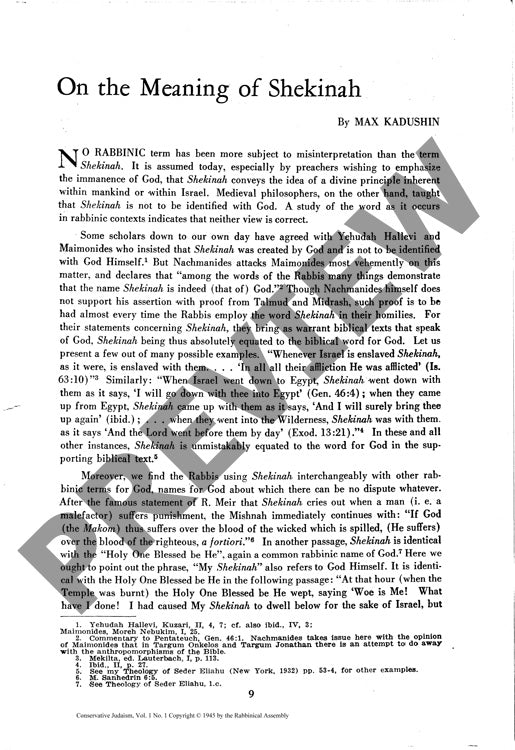On the Meaning of Shekinah
Couldn't load pickup availability
For centuries, medieval philosophers and modern scholars have misinterpreted the rabbinic term Shekinah, incorrectly viewing it as a created entity distinct from God or as a divine principle permanently inherent within humanity. A systematic examination of Shekinah's usage in Talmudic and Midrashic literature reveals instead that the Rabbis employed it as a direct reference to God Himself, serving dual functions as both a reverential divine name and a conceptual term expressing mystical experience of divine presence. Through contextual analysis of rabbinic texts and their supporting biblical citations, the research demonstrates Shekinah's interchangeable use with unambiguous divine names like Makom and "Holy One Blessed be He." This equivalence contradicts interpretations by figures such as Maimonides and Yehudah Hallevi, while refuting contemporary assumptions about Shekinah's permanent immanence within Israel. Rather than suggesting inevitable divine-human relationships, rabbinic literature depicts conditional connections between Shekinah and Israel. The findings establish that Shekinah fundamentally represents experiential divine proximity rather than philosophical immanence, correcting longstanding theological misunderstandings through careful attention to original rabbinic usage and context.

More Information
-
Physical Description
-
Publication Information
Published 1945
ISBN
-
Publication Credits
Max Kadushin

